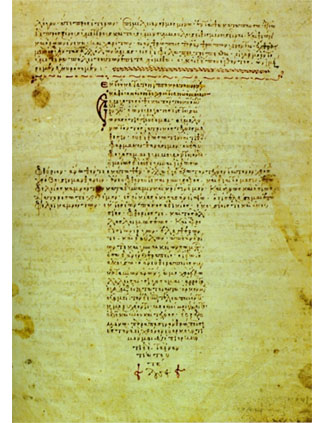The Hippocratic Oath, China Medical Insurance and Beijing Olympics Medical Care
 June 11 – A little known – and not publicized – aspect of expatriate living, or tourist visits to mainland China is the status of the Hippocratic Oath in the country. The oath, the origins of which date back to classic Greek civilization more than 2,000 years ago when it was enacted by the father of modern medicine, Hippocrates, is essentially a pledge that human life is sacred and that a doctor must administer aid when necessary to any person who falls ill or requires medical treatment to save their life, regardless of any underlying religious, political or even war-like status that may affect the patient at the time. It is, essentially, one of the cornerstones of modern civilization that separates man from animal and enhances the human nature of compassion. It has been adopted by doctors and medics on an almost global basis. However, doctors and other professionally trained personnel in China are not required to take this oath, as it contravenes the status of the Communist Party as the ultimate authority.
June 11 – A little known – and not publicized – aspect of expatriate living, or tourist visits to mainland China is the status of the Hippocratic Oath in the country. The oath, the origins of which date back to classic Greek civilization more than 2,000 years ago when it was enacted by the father of modern medicine, Hippocrates, is essentially a pledge that human life is sacred and that a doctor must administer aid when necessary to any person who falls ill or requires medical treatment to save their life, regardless of any underlying religious, political or even war-like status that may affect the patient at the time. It is, essentially, one of the cornerstones of modern civilization that separates man from animal and enhances the human nature of compassion. It has been adopted by doctors and medics on an almost global basis. However, doctors and other professionally trained personnel in China are not required to take this oath, as it contravenes the status of the Communist Party as the ultimate authority.
This means that in China, medical doctors are not required by way of oath to treat patients.
The implications can be severe, although to be fair to Chinese doctors, foreign patients with life threatening conditions are usually treated. However there have been cases in the past of treatment being denied and deaths occurring as no money could be found to cover the cost of emergency procedures. An unconscious casualty with serious trauma is unlikely to be able to respond when asked for payment for what can be expensive treatment in China’s already stretched hospitals.
Medical insurance, accordingly, should cover this. However, as David Wood, president of the Beijing-based China Care Group mentions, the procedures for getting a Chinese hospital to provide care under a U.S.-led insurance scheme are so problematic that many just give up the application process for coverage. One has to wonder then at the willingness of international medical insurance companies to underwrite potential casualties in China, and properly provide a decent and affordable scheme for China’s hospitals on behalf of their patients. So far this has not occurred, both as a mix of insurance risk issues and on-going domestic regulatory hurdles.
Under these circumstances then, in light of a shyness of international medical insurance risk, a lack of the Hippocratic Oath in China, and a perceived upturn in visitors for the Olympics to Beijing, the Beijing government itself has designated twelve hospitals at which medical treatment is guaranteed to foreigners with or without insurance. We reproduce their names below, in English and Chinese, and suggest these details are circulated to any travelers destined for Beijing during the Games. Any taxi driver or service personnel will recognize the closest facility if required in an emergency.
Beijing hospitals guaranteeing unsolicited medical treatment to foreign visitors
中日友好 China-Japan Friendship Hospital
北京协和医院 Peking Union Medical College Hospital
北京广安门医院 Guang’anmen Hospital,China Acdaemy of Traditional Chinese Medicine
北京口腔医院 Peking University School of Stomatology
北京积水潭医院 Beijing Jishuitan Hospital
北京急救中心 Beijing Emergency Medical Services
北京医院 Beijing Hospital
中国人民解放军总医院 General Hospital of PLA
北京大学第一医院 Peking University First Hospital
北京大学第三医院 Peking University Third Hospital
北京大学人民医院 Peking University People’s Hospital
北京首钢医院 Peking University Shougang Hospital
首都医科大学附属北京安贞医院 Beijing Anzhen Hospital, CPUMS
首都医科大学附属北京朝阳医院 Beijing Chaoyang Hospital, CPUMS
首都医科大学附属北京口腔医院 Beijing Stomatological Hospital,CPUMS
首都医科大学附属北京天坛医院 Beijing Tiantan Hospital, CPUMS
首都医科大学附属北京同仁医院 Beijing Tongren Hospital, CPUMS
首都医科大学附属北京友谊医院 Beijing Friendship Hospital, CPUMS
首都医科大学附属北京中医医院 Beijing Hospital of Traditional Chinese Medicine, CPUMS
首都医科大学宣武医院 Xuanwu Hospital, CPUMS
北京海淀医院 Beijing Haidian Hospital
北京博爱医院 Beijing Buoai Hospital
- Previous Article Is Western Consumerism Endangering China’s Wildlife?
- Next Article China Knocks Rust off Northeast









